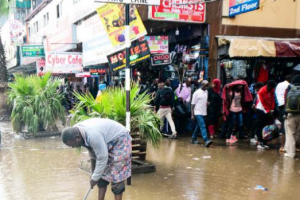A new report by the United Nations Environment Programme and the Sabin Centre for Climate Change Law at Columbia University has revealed a sharp rise in the number of climate-related court cases being filed globally.
The report, titled ‘Climate Change in the Courtroom: Trends, Impacts, and Emerging Lessons’, shows that legal actions on climate issues are now being pursued in more countries than ever before, covering concerns such as green-washing, carbon offsets and energy-intensive data centres.
According to the findings, as of June 30, 3,099 climate-related cases had been filed across 55 national jurisdictions and 24 international or regional courts. This marks a consistent increase from 2,180 cases in 2022, 1,550 in 2020 and 884 in 2017.
While cases from the Global South still account for less than 10 per cent, their share continues to rise. The report identifies five climate cases filed in Kenya, signalling growing environmental activism and judicial engagement in the region.
“Climate litigation has evolved into a powerful global tool for advancing climate action and accountability,” said Inger Andersen, executive director of Unep.
“Independent judicial systems are essential to ensuring that the transformation towards sustainability is just and effective.”
The 2025 edition—the fourth since the series began in 2017—tracks major legal trends, pending cases and landmark rulings between 2023 and 2025. It notes that courts worldwide are increasingly acknowledging the scientific basis of climate claims, including evidence linking extreme weather events to greenhouse gas emissions.
A key highlight is the July 24, Advisory Opinion of the International Court of Justice (ICJ), which affirmed that states have binding legal duties under international law to prevent climate-related harm and protect the climate system.
However, the report also warns of a rise in anti-climate litigation, with lawsuits aimed at rolling back environmental protections and targeting activists, journalists and civil society groups opposing high-emission projects.
The report concludes that climate litigation now spans virtually all areas of climate governance and is influencing legal norms globally, including related crises such as biodiversity loss and pollution.
Unep said it will continue working with governments, legal institutions and civil society to strengthen environmental justice and ensure accountability for climate action.
by GILBERT KOECH













